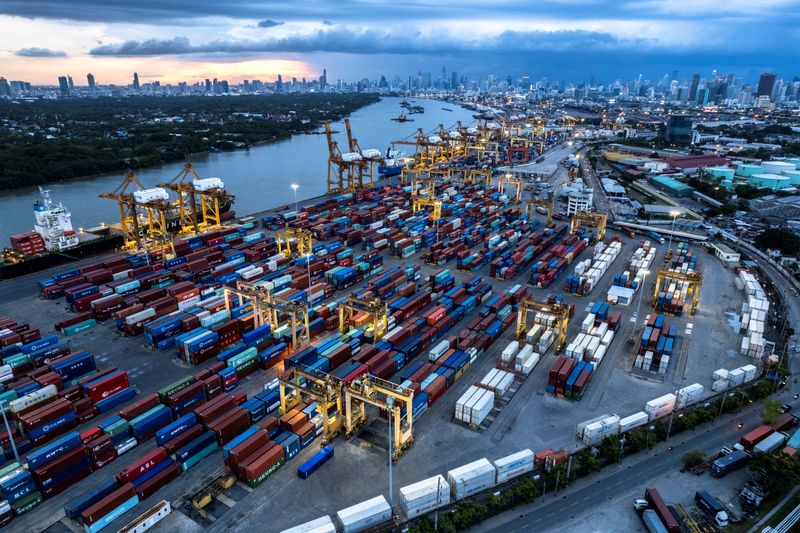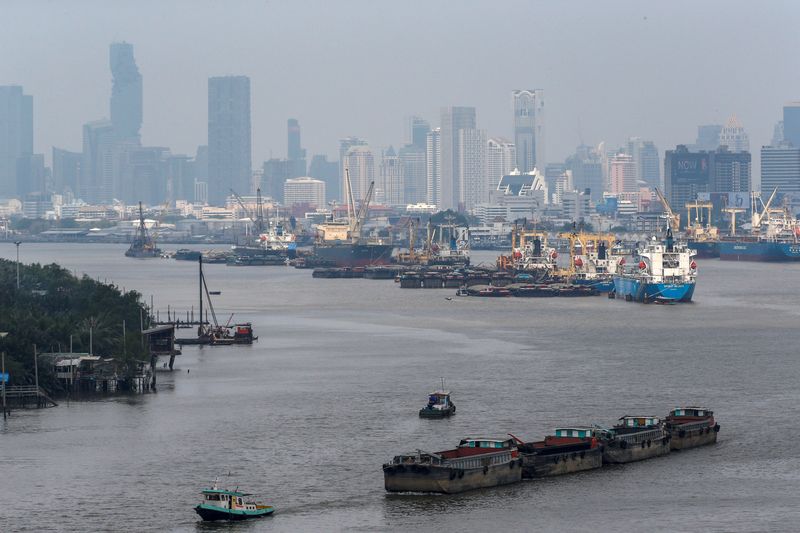By Orathai Sriring and Kitiphong Thaichareon
BANGKOK (Reuters) -Thailand's exports contracted less than expected in May, as higher industrial goods shipments and a weakening baht helped offset some of the impact of sluggish global demand, the commerce ministry said on Tuesday.
Customs-based exports, a key driver of Thai growth, declined 4.6% in May from a year earlier, beating a forecast for an 8% year-on-year drop in a Reuters poll. Exports jumped 12% from April.
"A positive factor for overall exports was the weakening baht," Keerati Rushchano, the ministry's permanent secretary, said in a press briefing.
The baht has depreciated 1.8% against the dollar so far this year.
The global economic outlook should also improve, which will be positive for exports from now until the end of the year, Keerati said. The ministry maintains its target of 1%-2% annual export growth for 2023, he added.
While global economic uncertainty has weighed on demand, the global manufacturing sector has shown signs of recovery from production chain disruptions, the ministry said in a statement.
Exports of industrial goods rose 1.5% in May from a year earlier, picking up for the first time in eight months, helped by higher shipments of automobiles and semiconductors.
Shipments of agricultural goods, however, fell 27% in May from a year ago, with rubber down 37% year-on-year. But rice exports jumped 85% from May 2022.
Exports to the United States rose 4.2% year-on-year last month, while shipments to Japan fell 1.8%. Exports to China slumped 24% year-on-year due to the country's uncertain economic recovery.

Thailand posted a trade deficit of $1.8 billion in May versus a forecast deficit of $300 million, with imports showing a 3.4% year-on-year drop.
For the January-May period, exports declined 5.1% from a year earlier, imports were down 2.5% and the trade deficit stood at $6.4 billion.
